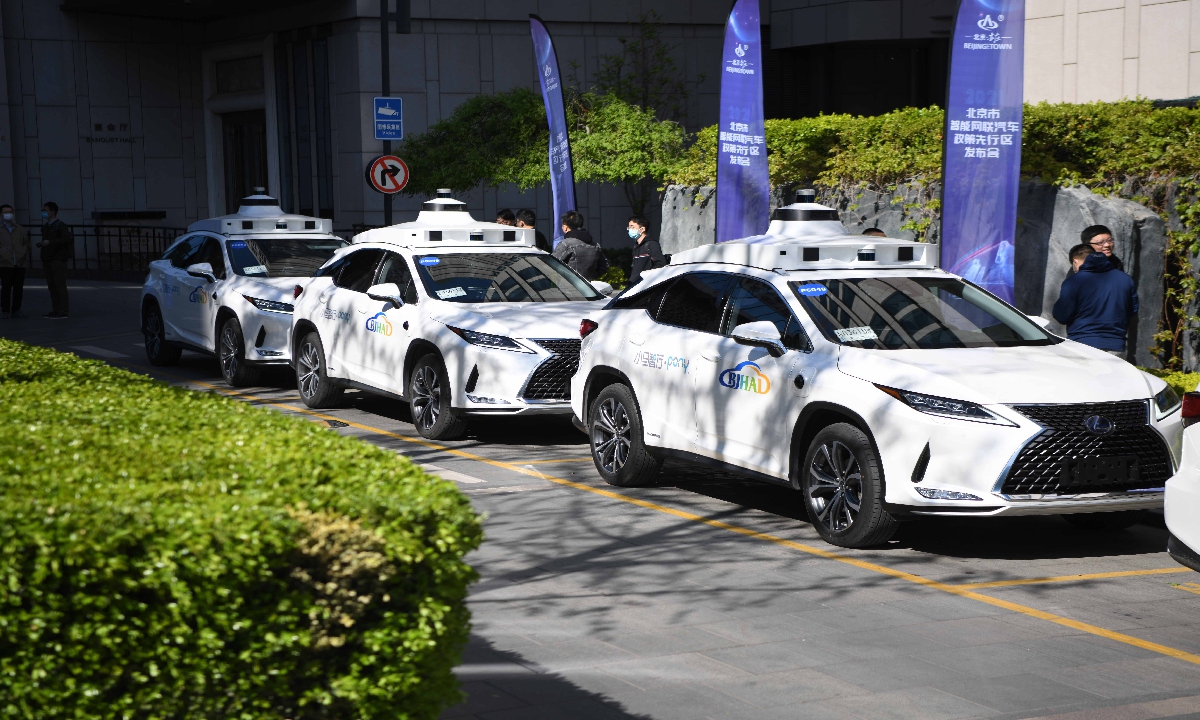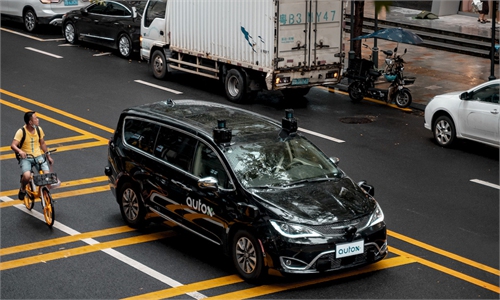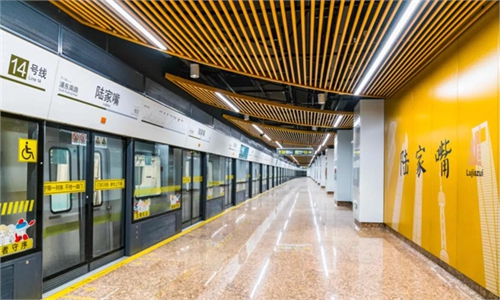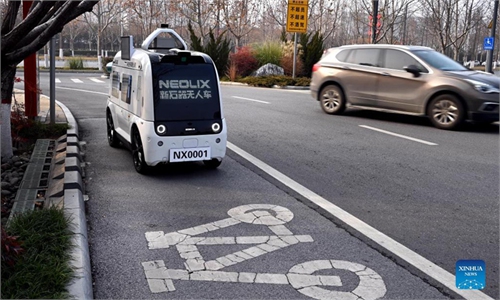Beijing further tests driverless ride-hailing services, allowing removal of safety operator from driver's seat

A Pony.ai self-driving fleet in Beijing Economic-Technological Development Area, Beijing on April 13, 2021. Photo: CFP
Beijing will further open tests for driverless ride-hailing services to the public on open roads, while permitting the removal of a safety operator from the driver's seat, a major step toward a fully driverless future.
With permits issued by the head office of the Beijing High-level Automated Driving Demonstration Area on Thursday, 14 autonomous vehicles without drivers behind the steering wheel will offer rides to passengers in designated areas from 20 to 60 square kilometers in Beijing.
Previously, self-driving cars have been tested in many places in Beijing, and they have even tried to carry passengers to "run for a taxi", but there has a safety operator on duty in the driver's seat, ready to take over the vehicle in emergencies.
Officials from the city's high-level autonomous driving demonstration area said they have now started the last stage of research work, aiming to make the vehicles be able to drive without a safety operator, according to Beijing Daily.
Companies such as tech giant Baidu and pony.ai told the Global Times that they received the permits in China authorizing them to provide driverless ride-hailing services to the public on open roads in Beijing.
Baidu said its licensed cars will join an existing fleet provided by Apollo Go, Baidu's autonomous ride-hailing service in Beijing. Starting April 28, 2022, users will be able to hail a driverless ride using the Apollo Go mobile app in daytime from 10:00 to 16:00.
Currently, Baidu has the largest autonomous driving fleet in China. In expanding its driverless vehicle services, the company has worked to meet the unique technical challenges of Beijing's complex traffic environment. The company plans to add 30 more such vehicles at a later stage, expanding its fleet to provide services to the public.
In October last year, Pony.ai won an unmanned road test license in Beijing, which means their services can be tested in various scenarios such as unprotected left turns, multi-lane traffic, temporary construction, sand and rain unmanned testing.
On Wednesday, Pony.ai was awarded a permit to operate 100 autonomous vehicles as traditional taxis in Nansha, in Guangzhou, South China's Guangdong Province. In May, Pony.ai will start charging fares throughout the entire 800 square kilometers of Nansha with 100 robotaxis.
Beijing launched its first commercial trial of autonomous driving and rolled out relevant management policies in November.
The mileage of autonomous driving road tests in Beijing has exceeded 80,000 kilometers in the past six months, and the vehicles are running in good condition and there are no safety accidents, which has also laid a solid foundation for this opening of unmanned operations, according to the officials from the regulator.
Global Times



